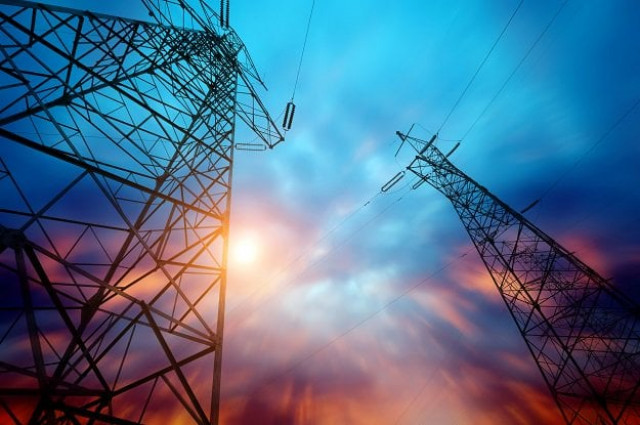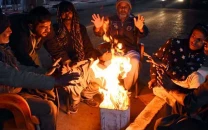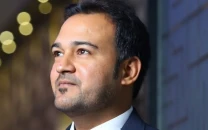NEPRA increases K-Electric’s tariff, but the company isn’t pleased
Regulator set the tariff at Rs12.77 per unit compared to power utility’s demand for Rs15.57

Power transmission lines. PHOTO: REUTERS
At present, K-Electric’s end-consumer tariff is Rs12.07 per unit, which will go up to Rs12.77. The new tariff will come into effect retrospectively from July 2016. In a statement, however, K-Electric said the higher base tariff would have no impact on the end-consumer tariff in line with the uniform tariff policy implemented across Pakistan.
In its petition, K-Electric had sought a tariff increase up to Rs15.57 per unit for operational sustainability. However, Nepra turned down the request, increasing the tariff to Rs12.07 per unit in March 2017.
NEPRA to take action against K-Electric for prolonged outages
Thereafter, K-Electric filed a review petition and after conducting hearings, the regulator increased the tariff to Rs12.7706 per unit.
The multi-year tariff will be applicable for seven years starting from July 1, 2016 and ending on June 30, 2023.
In its decision, the regulator said K-Electric would hire an independent engineer for conducting heat rate tests within six months after the date of notification of the instant tariff determination.
Nepra will approve the selection process and appointment of the engineer whereas tests will be conducted in the presence of Nepra professionals as observers. Adjustment in heat rates will be made based on results of the performance test.
Nepra did not allow K-Electric any provision for including the cost of doubtful debts in tariff, but allowed the company to write off bad debts at the rate of 1.69% of its assessed sales revenue.
For actual write-off in the future, K-Electric will adopt the procedure set by the regulator.
Under this programme, electricity connection will be cut off for more than three years and due process of law for the recovery of outstanding bills will be followed.
In case where the ownership of a premises is disputed, K-Electric will certify that it has made its best efforts to recover the outstanding bills, but the amount is not recoverable. Then, the amount will be considered for write-off.
The amount to be written off will be approved by the board of directors of K-Electric.
Other income, excluding the impact of late payment charges, interest on bank deposits and meter rent, has been removed from the base tariff assessment. K-Electric will pay interest earned on security deposits to the consumers through electricity bills.
Nepra directed K-Electric to stop collecting meter rent in future from those consumers who pay the meter cost. It allowed K-Electric a total investment of Rs298.915 billion for the seven-year tariff period in its generation, transmission and distribution systems.
Major power breakdown hits Karachi again
Nepra will undertake a mid-term review after four years of the tariff control period and in case of lower-than-expected investment and performance by K-Electric, the base rate adjustment component may be adjusted.
Nepra also set the percentage of transmission and distribution (T&D) losses over the seven-year tariff control period.
K-Electric has been allowed 20.90% T&D loss in the first year, 19.80% in the second year, 18.75% in third year, 17.76% in fourth year, 16.80% in fifth year, 15.95% in sixth year and 15.36% in seventh year.
“K-Electric is currently evaluating the determination and will pursue its future course of action accordingly,” the spokesperson said.
Published in The Express Tribune, October 11th, 2017.
Like Business on Facebook, follow @TribuneBiz on Twitter to stay informed and join in the conversation.



















COMMENTS
Comments are moderated and generally will be posted if they are on-topic and not abusive.
For more information, please see our Comments FAQ